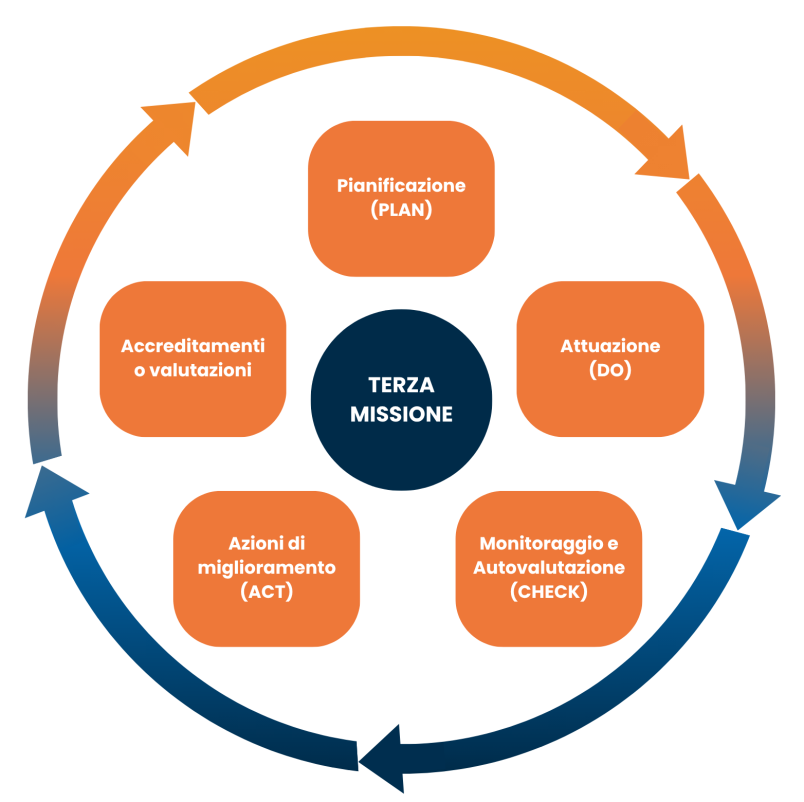In recent years, the ‘Third Mission’ has expanded its sphere of action, starting from technology transfer and the exploitation of research results to emphasise the “sharing” and ‘co-generation’ of knowledge with businesses and society.
The resulting model is that of an open, permeable, inclusive university that is attentive to quality of life.
In this context of expanding the missions of a university, the 2018-2024 Strategic Plan ‘PoliTo4Impact’ has been an important point of reference. The current 2024-2030 Strategic Plan “PoliTo in Transition” continues and expands the commitment to Third Mission and Social Impact activities, strengthening the link with the city, the territory and the community through collaboration and shared innovation initiatives.
The focus on these issues has enabled the University to be recognised as the best university in Italy in the specific field of the Third Mission, following the research quality assessment process (VQR 2015-2019).

Similarly to what has been reported for the Quality of Research Assurance Process, even in the area of the Third Mission, the process phases include a number of policies that the University has implemented over the years and which are summarised here.
- Planning (PLAN) by the University (PSA) and Departments (PSD) and the identification of KPIs, useful in all phases of the process
- Implementation (DO) of the strategy by the Departments;
- Self-assessment and monitoring (CHECK) carried out by the Departments, including through the use of indicators, to identify strengths and weaknesses and the actions to be taken (ACT);
- Evaluation of the indicators and progress of the PSA and the performance of each Department, carried out periodically by the Evaluation Board. The specific activity of assessing the quality of research output is carried out by ANVUR through the VQR process;
- External evaluations carried out by ANVUR during periodic accreditation and evaluation of research quality and the Third Mission Social Impact.
In the action planning phase, both at university level and at individual department level, KPIs will be identified. These will be useful for monitoring, self-assessment and final or periodic evaluation of individual actions (as defined, for example, in the Action Plan).